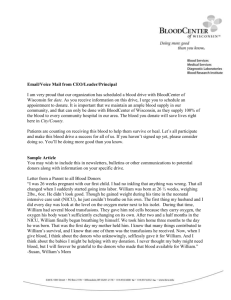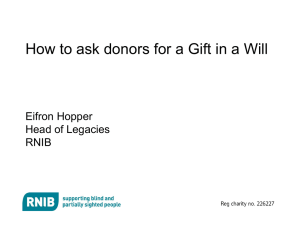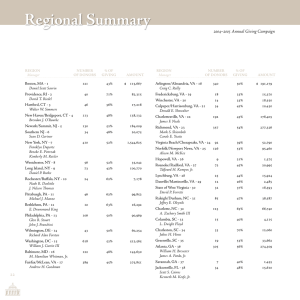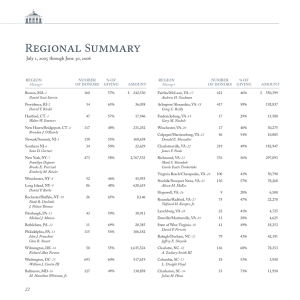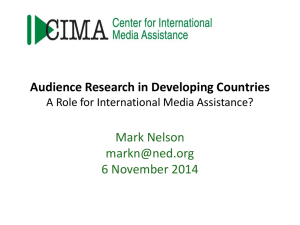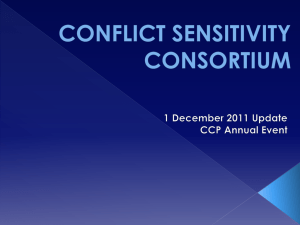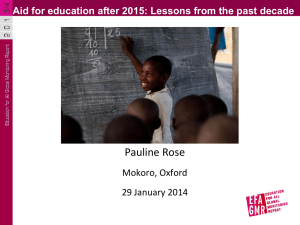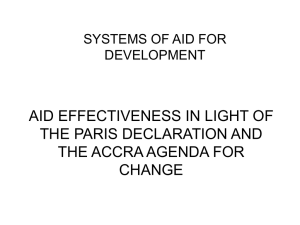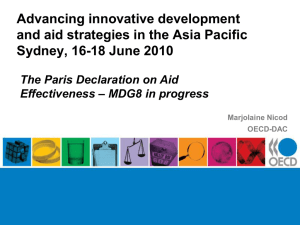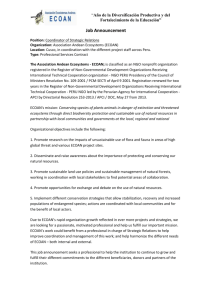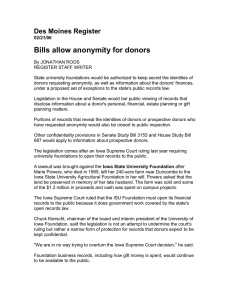Abstract - LSE - London School of Economics and Political Science
advertisement
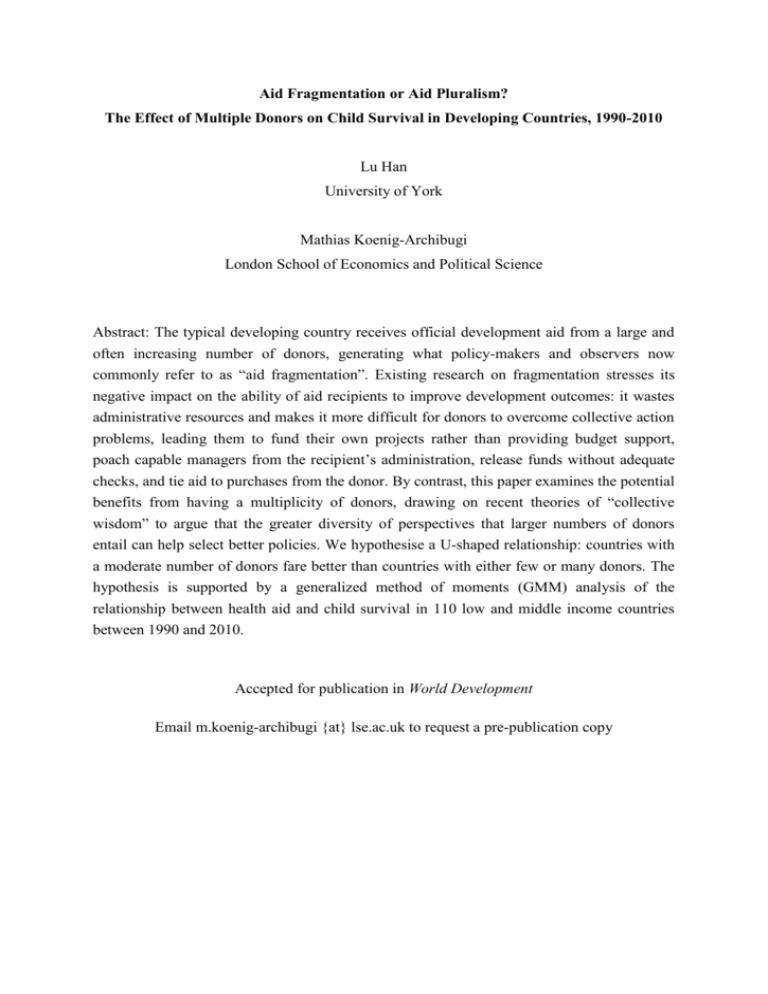
Aid Fragmentation or Aid Pluralism?
The Effect of Multiple Donors on Child Survival in Developing Countries, 1990-2010
Lu Han
University of York
Mathias Koenig-Archibugi
London School of Economics and Political Science
Abstract: The typical developing country receives official development aid from a large and
often increasing number of donors, generating what policy-makers and observers now
commonly refer to as “aid fragmentation”. Existing research on fragmentation stresses its
negative impact on the ability of aid recipients to improve development outcomes: it wastes
administrative resources and makes it more difficult for donors to overcome collective action
problems, leading them to fund their own projects rather than providing budget support,
poach capable managers from the recipient’s administration, release funds without adequate
checks, and tie aid to purchases from the donor. By contrast, this paper examines the potential
benefits from having a multiplicity of donors, drawing on recent theories of “collective
wisdom” to argue that the greater diversity of perspectives that larger numbers of donors
entail can help select better policies. We hypothesise a U-shaped relationship: countries with
a moderate number of donors fare better than countries with either few or many donors. The
hypothesis is supported by a generalized method of moments (GMM) analysis of the
relationship between health aid and child survival in 110 low and middle income countries
between 1990 and 2010.
Accepted for publication in World Development
Email m.koenig-archibugi {at} lse.ac.uk to request a pre-publication copy



